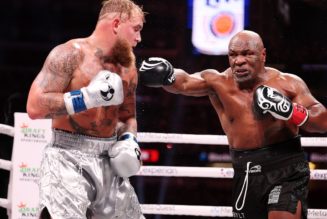We’re all tired. Every day runs together, an endless tangle of hours and screens and occasional bursts of daylight to recharge. Old routines take on new wrinkles: meetings via webcam, masks to maintain and wear before outings, communal activities retrofitted to be done in isolation. Maybe we’re not in a literal time loop, but it sure feels like one; a long, endless stretch of days where little changes and we’re burned out all the time. Enter Palm Springs, a movie for 2020’s burnout state of mind.
At first blush, Palm Springs is another take on Groundhog Day: Nyles (Andy Samberg) is a dude with the terrible misfortune of having to relive an acquaintance’s wedding day over and over again. But what makes Palm Springs stand out is how little it’s concerned with its own premise. Of course, the time-loop is all-encompassing and ever-present, but it’s also a fact of life. At the start, Nyles has been living in it for longer than he can remember; the only reason we learn about how it works is because something weird happens: Sarah (Cristin Milioti), the sister of the bride, gets trapped in it, too.
The new Hulu comedy might surprise some viewers, especially those tuning in for a film produced by comedy trio The Lonely Island — a crew that, across countless Saturday Night Live shorts or movies like Hot Rod and Popstar, became known for pop music parody and extremely silly humor. Palm Springs is definitely funny, but it’s a darker, hazier affair.
:no_upscale()/cdn.vox-cdn.com/uploads/chorus_asset/file/20082896/Screen_Shot_2020_07_14_at_9.57.31_AM.png)
Sarah goes through the requisite shock and denial upon learning her circumstances, but it’s all mostly in the service of making sure viewers understand the few hard rules the movie has for its time loop. Once all that’s taken care of, the movie digs into its characters, and that’s where it sings. Both Sarah and Nyles have a darkness to them that doesn’t get in the way of the comedy but still imbues every sun-bleached frame with a strange, difficult-to-grasp sorrow. Milioti is excellent as Sarah, giving depth and complexity to a character that could easily be played as a manic pixie dream girl in lesser hands. Samberg brings an unusual darkness to his goofball persona that’s surprisingly effective.
Both Samberg and Milioti are Old Millennial icons. Samberg rose to fame as the Saturday Night Live star that helped push the comedy institution into the digital era alongside his compatriots in The Lonely Island, Milioti was the surprise parting gift given to this generation by one of its most disappointing sitcoms, How I Met Your Mother. Together, as the stars of Palm Springs, the pair imbues it with a unique generational malaise.
At this point, millennials are either comfortably in or approaching their 30s, an age they’re socialized to believe brings stability. That stability continues to elude us, thanks to a slow-motion institutional breakdown and overnight disasters that extend into ongoing nightmares like the coronavirus pandemic. The sum of it all is overwhelming, beating down like the desert sun in the California resort town Palm Springs is named after.
In a world like this, not caring comes easy. There’s little to look forward to and not much to be gained by looking back. And Nyles and Sarah really don’t want to look back. They’ve each got secrets they’d rather spend eternity ignoring. Nyles and Sarah start to fall for each other because, in each other, they can hide from who they were before time stopped. But eventually, their relationship makes it very hard for them to exist because when you start to love someone else, you have to think about the person you’re going to be — and that’s a question they’d rather not find an answer to. What elevates Palm Springs from clever dark comedy to poignant story is in the clarity of its moral vision, the belief that it’s worth it to hold on to some kind of decency even if literally nothing in the world matters.
Palm Springs was conceived and filmed in a pre-pandemic world, but the allure of nihilism was already strong in an existence where many of the pretenses of equity or civic duty had been dispensed. The pull to withdraw and go numb was already strong; now it’s overwhelming. The cost of sticking your neck out is high, and the rewards are slim. What point is there in pushing forward and finding the way to break a cycle bigger than us? Or, more importantly, examining the ways we’ve helped hasten the rot?
Over and over, Nyles tells Sarah: there’s little that he hasn’t done. Carrying the weight of it all doesn’t get any easier when the world resets. He remembers, and that can be its own punishment — especially as he forgets, or claims to forget, anything about his life before the loop began. It’s that part, the part before all this, that seems to haunt Nyles the most.
And while Palm Springs is a fun rom-com, it’s a story haunted by the idea that we’d secretly be tempted by a world where nothing really matters, to absolve ourselves of responsibility. Of course, there’s no guarantee that things will be better if we face what we’re hiding from — but it’ll almost certainly be a hell of a lot easier to live with ourselves, no matter how tired we are.










